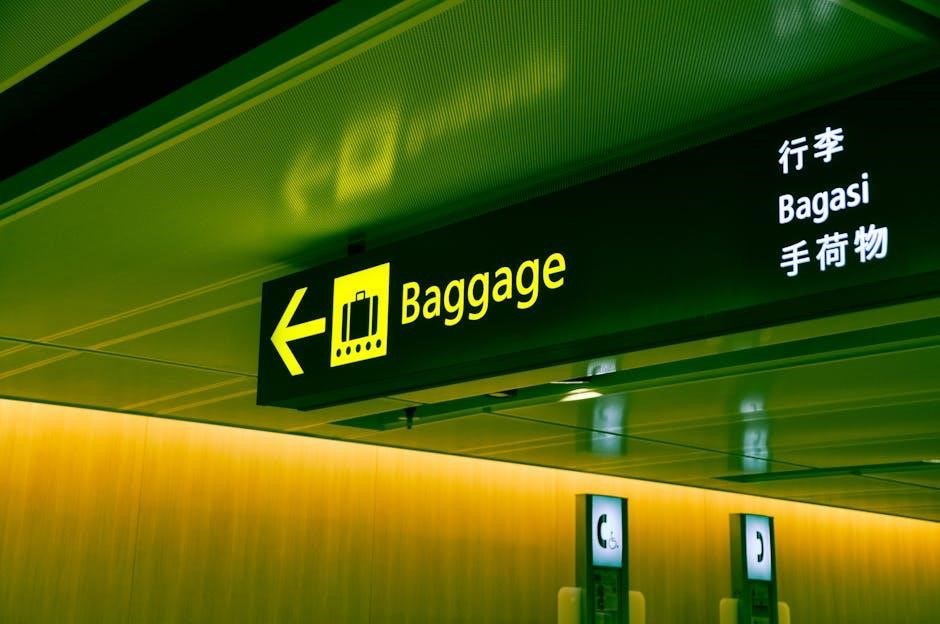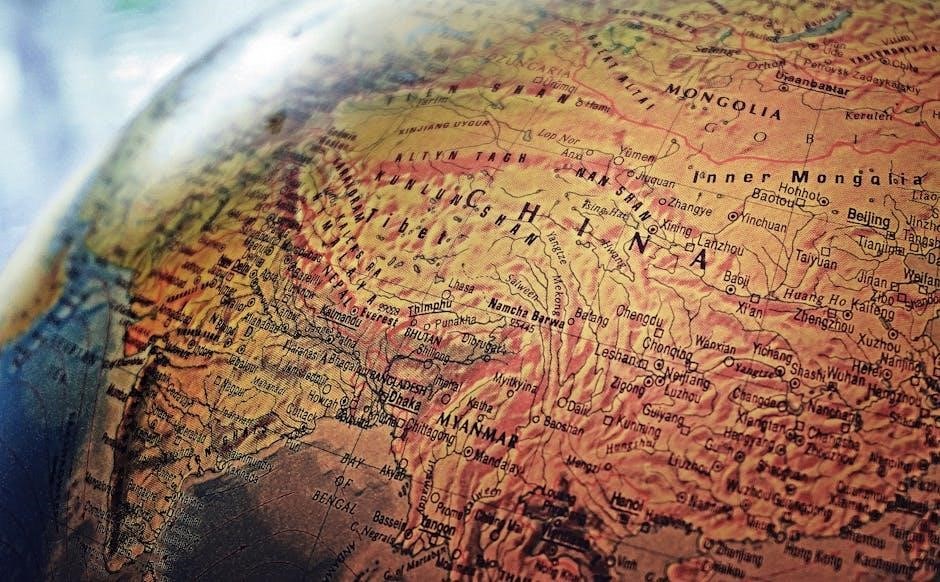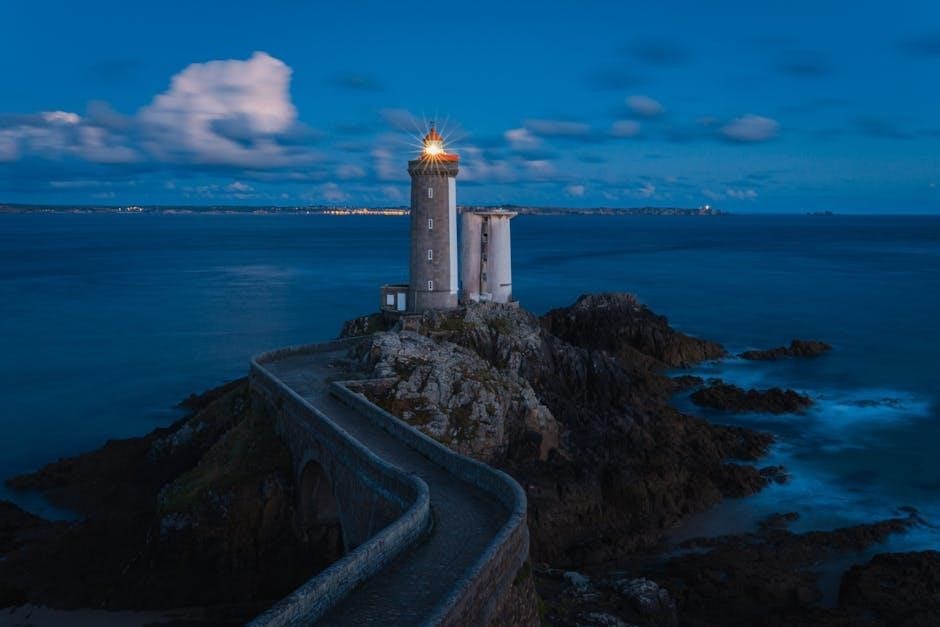Overview of El Salvador as a Travel Destination
El Salvador, a small yet vibrant Central American nation, offers a mix of stunning natural beauty, rich culture, and exciting outdoor activities, making it an emerging travel hotspot.
El Salvador captivates travelers with its unique blend of volcanic landscapes, stunning beaches, and vibrant culture. From surfing on the Pacific coast to exploring lush jungles and Mayan ruins, this small nation offers a diverse experience. Its friendly locals, lively festivals, and mouthwatering cuisine make it a must-visit destination for adventure seekers and culture enthusiasts alike.
1.2. Best Time to Visit El Salvador
El Salvador boasts a tropical climate, warm year-round, making it a great destination any time. The dry season (November to April) is ideal for outdoor activities like hiking and surfing. The green season (May to October) offers lush landscapes and fewer crowds. Plan accordingly based on your preferences for weather and activities.
Best Places to Visit in El Salvador
Explore El Salvador’s diverse attractions, from volcanic landscapes and stunning beaches to vibrant cities and ancient ruins, offering a mix of nature, culture, and adventure for every traveler.
2.1. Natural Attractions: Volcanoes, Beaches, and Waterfalls
El Salvador boasts stunning natural attractions, including iconic volcanoes like Santa Ana and Cerro Verde, offering breathtaking views and hiking opportunities. The coast features pristine beaches such as El Tunco and El Zonte, known for world-class surfing. Hidden gems like the dramatic Tamanique Waterfalls and lush tropical jungles provide unforgettable experiences for nature enthusiasts and adventure seekers alike.
2.2. Cultural and Historical Landmarks
El Salvador is rich in cultural and historical landmarks, such as the National Palace and the Art Museum of El Salvador in San Salvador, showcasing the country’s architectural and artistic heritage. The stunning El Rosario church and the ancient Mayan ruins, like Joya de Cerén, known as the “Pompeii of the Americas,” highlight its deep historical roots and vibrant cultural identity.
2.3. Hidden Gems and Off-the-Beaten-Path Locations
Discover El Salvador’s lesser-known treasures, such as the charming town of Ataco and the picturesque village of Apaneca, nestled in the coffee-growing highlands. Explore hidden waterfalls, lush tropical jungles, and quaint flower-filled villages that offer a serene escape from the usual tourist routes, providing a unique and authentic experience of the country’s natural beauty and local culture.
Things to Do in El Salvador
Explore El Salvador’s vibrant culture through festivals and local cuisine, or embark on thrilling adventures like surfing, hiking, and trekking through its stunning landscapes.
3.1. Adventure Activities: Surfing, Hiking, and Trekking
El Salvador offers thrilling adventures like surfing on world-class waves at La Libertad and El Zonte, hiking through volcanic landscapes, and trekking to hidden waterfalls. Explore lush jungles, climb active volcanoes like Santa Ana, and discover crater lakes. The rugged terrain and tropical climate make it a paradise for outdoor enthusiasts seeking unforgettable experiences.
3.2. Cultural Experiences: Festivals, Local Cuisine, and Traditions
El Salvador’s vibrant culture shines through its festivals, such as the Fiestas Agostinas in San Salvador and the Flower and Palmera Festival in Panchimalco. Savor local cuisine like pupusas, empanadas, and tamales, while exploring bustling markets. Experience traditions like religious processions and artisanal crafts, reflecting a rich heritage that blends indigenous and colonial influences.

Travel Safety and Precautions
Exercise normal precautions due to reduced gang activity and violent crime. Avoid nighttime travel, secure accommodations, and stay informed for a safe El Salvador experience.
4.1. Current Safety Situation and Travel Advisory Updates
El Salvador’s safety has improved, with decreased gang activity and violent crime. The U.S. lowered its travel advisory to Level 1, reflecting enhanced security conditions. While precautions are still necessary, the country is now considered safer for travelers, attracting more visitors to explore its culture and natural beauty;
4.2. Tips for Staying Safe While Traveling
Exercise normal precautions, use major highways, and avoid traveling outside cities at night. Secure your accommodation, stay aware of surroundings, and avoid openly changing large amounts of money. Avoid walking alone in isolated areas and keep valuables secure. Stay informed about local conditions and follow advice from authorities to ensure a safe and enjoyable trip.

Entry Requirements and Travel Documents
To enter El Salvador, your passport must be valid for at least six months beyond your arrival date. A tourist visa or card, costing $12, is valid for 90 days. Verify immigration requirements before travel to ensure compliance.
5.1. Passport and Visa Requirements
Travelers to El Salvador must have a passport valid for at least six months beyond their stay. A tourist visa or card, costing $12, is required for most visitors and is valid for 90 days. Check specific entry requirements based on nationality to ensure compliance with immigration regulations before planning your trip.
5.2. Immigration and Customs Information
Upon arrival, travelers must present a valid passport and may need to purchase a $12 tourist card. Customs allow personal effects, but restrict weapons, drugs, and certain goods. Declare all items to avoid penalties. Follow local immigration guidelines and respect officials to ensure smooth processing. Stay informed about entry and exit regulations to comply fully.
Budget and Money Matters
El Salvador is an affordable destination, offering budget-friendly options for accommodation, food, and activities. Travelers can manage expenses without overspending, making it ideal for all budgets.
6.1. Average Costs for Accommodation, Food, and Activities
El Salvador offers affordable options for travelers. Hostels cost between $10-15 per night, meals are $3-5, and activities like hiking range from $10-20. These prices make El Salvador an ideal destination for budget-conscious travelers seeking value without compromising on experience.
6.2. Budget Tips for Travelers
Stay in budget-friendly hostels or guesthouses, which cost $10–$15 per night. Eat at local eateries for $3–$5 per meal. Use public transport for affordable travel. Negotiate prices at markets and opt for free attractions like beach visits or exploring local markets. Carry local currency for better deals and avoid unnecessary expenses to maximize your travel budget efficiently.

Cultural Festivals and Local Celebrations
El Salvador’s vibrant festivals showcase its rich heritage, featuring traditional music, dance, and local cuisine. These celebrations highlight the country’s cultural identity and historical significance.
7.1. Major Festivals and Their Significance
El Salvador’s major festivals, like the Fiestas Agostinas in San Salvador, celebrate cultural heritage with vibrant parades, traditional food, and music. Semana Santa is another significant event, showcasing religious devotion through elaborate processions. These festivals highlight the country’s history, traditions, and community spirit, offering visitors a unique glimpse into Salvadoran identity and hospitality.
7.2. Best Times to Experience Local Culture
The best time to experience El Salvador’s culture is during the dry season, from November to April, when festivals and traditions are in full swing. This period offers ideal weather for outdoor events, vibrant markets, and cultural celebrations, allowing visitors to fully immerse themselves in the country’s rich heritage and lively atmosphere.

Accommodation Options
El Salvador offers diverse accommodation options, ranging from budget-friendly hostels and eco-lodges to luxury hotels, catering to all traveler preferences and budgets.
8.1. Hotels, Hostels, and Eco-Lodges
El Salvador offers a wide range of accommodations, from luxury hotels with modern amenities to budget-friendly hostels and eco-lodges surrounded by nature. Eco-lodges provide immersive experiences in lush environments, while beachfront hotels and hostels cater to surfers and travelers seeking affordability and vibrant social scenes. Options vary, ensuring something for every traveler’s style and budget.
8.2. Budget-Friendly and Luxury Accommodation Choices
El Salvador offers diverse lodging options, from budget-friendly hostels and guesthouses to luxury resorts. Affordable choices like hostels in coastal towns provide basic comforts, while luxury accommodations feature upscale amenities and breathtaking views. Beachfront resorts and boutique hotels cater to travelers seeking comfort and style, ensuring a memorable stay regardless of budget constraints or preferences.
Transportation and Getting Around
El Salvador offers public transport, rental cars, and taxis for easy navigation. Major highways connect key destinations, while scenic routes provide stunning views of the countryside.
9.1. Public Transport, Rental Cars, and Taxis
Public buses are affordable and connect major cities, while rental cars offer flexibility for exploring rural areas. Taxis are widely available, with ridesharing apps like Uber also operational, ensuring convenient travel options for visitors. Additionally, shuttles and private transfers provide alternatives for tourists seeking comfort and ease during their journey across the country.
9.2. Best Routes for Exploring the Country
El Salvador’s scenic routes offer diverse experiences. The Ruta de las Flores winds through charming colonial towns and coffee plantations, while the Pacific Coast Highway provides stunning ocean views. Major highways connect cultural landmarks and natural wonders, making it easy to explore volcanoes, beaches, and historical sites. These routes cater to both adventure seekers and those looking for serene landscapes.

What to Wear and Pack
El Salvador’s tropical climate calls for lightweight, breathable clothing. Pack sunscreen, a hat, sunglasses, and sturdy shoes for outdoor adventures. Stay hydrated with a reusable water bottle.
10.1. Essential Items for Different Activities
For surfing, pack a rash guard, board shorts, and reef boots. Hikers should bring sturdy shoes, trekking poles, and a lightweight backpack. Sunscreen, a hat, and sunglasses are musts for outdoor exploration. Include a reusable water bottle for hydration and a waterproof phone case for water activities. Don’t forget insect repellent and a first-aid kit for added safety.
10.2. Climate-Specific Clothing and Gear
El Salvador’s tropical climate calls for lightweight, breathable clothing like cotton and linen. Include moisture-wicking fabrics for active days. Sunscreen, wide-brimmed hats, and sunglasses are essentials for sun protection. Bring insect repellent to guard against mosquitoes. For the dry season (November to April), opt for light layers, while the wet season (May to October) may require a waterproof jacket or umbrella. Pack accordingly for cooler mountain evenings.

Health and Wellness
El Salvador has decent medical facilities in San Salvador, but limited elsewhere. Ensure vaccinations are up-to-date, especially for Hepatitis A. Bring sun protection and insect repellent.
11.1. Medical Facilities and Emergency Services
El Salvador’s medical facilities are modern in major cities like San Salvador, but limited in rural areas. Private hospitals offer better care, and emergency services are available. Ensure vaccinations are up-to-date, especially for Hepatitis A. Carry sun protection and insect repellent to prevent illnesses. Travel insurance covering medical evacuations is highly recommended due to limited specialized care outside urban centers.
11.2. Health Tips for Travelers
- Stay hydrated with bottled or filtered water to prevent dehydration and waterborne illnesses.
- Ensure all vaccinations are up-to-date, including Hepatitis A and typhoid fever.
- Use sunscreen and insect repellent to protect against sun exposure and mosquito-borne diseases.
- Avoid consuming undercooked food or raw vegetables to reduce the risk of gastrointestinal issues.
- Carry a first-aid kit and consider travel insurance covering medical emergencies.